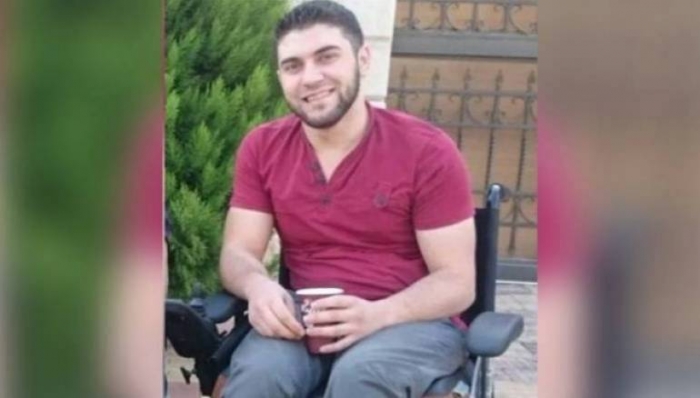Due to lack of medical services in Daraa, Obada al-Asemi was forced to travel the mountainous route to Jordan after being shot in the back by a sniper.
The arduous journey only served to worsen the 20-year-old’s condition, causing irreparable damage to his spinal cord between his fifth and sixth vertebra.
"I stayed at home for eight months without any professional medical care, apart from my family's help, which affected my emotional and psychological status, and my new medical problem,” Obada told Zaman al-Wasl.
Obada later moved to a treatment center, where he decided to join a disability training course with a Japanese organization. It was here that Obada’s life changed.
The course, titled “Independent living” and sponsored by the Japanese International Cooperation Agency (JICA), teaches disabled people to become self-reliant, helping them to lead independent and fulfilling lives. Following the course, Obada continued his rehabilitation with an experienced Syrian coach.
He then undertook a course titled “Equality in disability", concentrating on the way communities perceive and understand disability issues.
Despite there being only 270 others specialized in the field around the world, Obada is now Syria’s first certified disability coach.
Obada first performed as a coach in training centers for disabled and wounded people. He explained that he has now started training people on issues of disability inclusion within all aspects of life, such as education, sports and social life, while pushing for designers to recognize the need for all facilities, streets and stadiums to suit the needs of disabled people in the community.
The experience of facing and confronting disability must be transferred to other disabled people, Obada said, because the majority of the disabled and wounded are still in their youth. Such individuals find it difficult to adapt and accept their medical condition and disability, as most services provided to them are mainly medical, while the psychological, emotional and social aspects are ignored, he added.
Obada’s next project is conducting training courses for people with disabilities in Zaatari refugee camp with the assistance of 11 other Syrian coaches.
This article was edited by The Syrian Observer. Responsibility for the information and views set out in this article lies entirely with the author.


